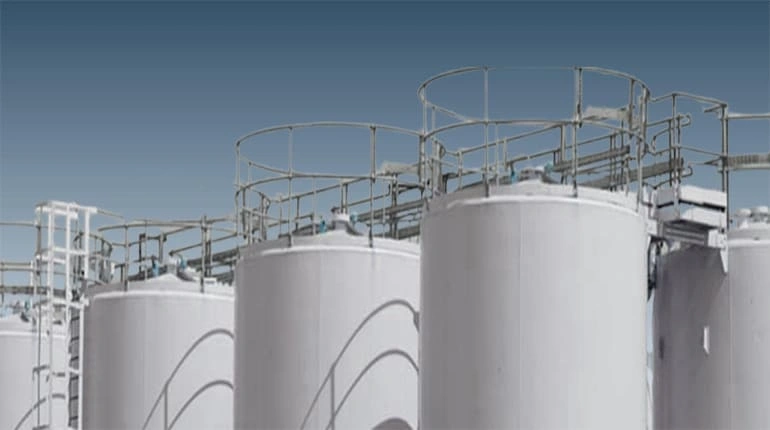
Storage silos are essential components in a wide range of industries, from agriculture to manufacturing, and play a crucial role in storing and handling bulk materials efficiently. The design and construction of storage silos require meticulous planning and execution to ensure they meet the specific needs of each application. This is where storage silo design consultants come into play. Storage silo design consultants are experts who specialize in creating custom storage solutions tailored to the unique requirements of their clients. In this essay, we will explore the role of storage silo design consultants, their importance in various industries, and the key aspects of their work.
Needs Assessment: The first step for a storage silo design consultant is to understand the client's requirements. They assess factors such as the type of material to be stored, quantity, flow properties, space constraints, environmental conditions, and regulatory compliance. This thorough needs assessment is critical to creating a storage solution that optimally serves the client's purposes.
Design Development: After assessing the client's needs, storage silo design consultants develop detailed designs that take into account factors like silo type (e.g., flat-bottom, hopper-bottom, or silo-bag), materials of construction (steel, concrete, etc.), capacity, discharge mechanisms, and other essential features. The design phase often includes structural engineering, ensuring the silo can withstand loads and environmental conditions.
Material Flow Analysis: Efficient material flow is crucial to prevent issues like bridging, rat-holing, and segregation. Storage silo design consultants perform material flow analysis to determine the best flow patterns, incorporating features such as hopper angles, discharge gates, and aeration systems to facilitate smooth material discharge.
Safety and Compliance: Consultants ensure that the silo design complies with all relevant safety standards, including fire and explosion prevention measures where necessary. Regulatory compliance is a paramount concern, especially in industries dealing with hazardous materials.
Cost Optimization: Consultants work to strike a balance between the client's budget and the desired storage system. They aim to deliver cost-effective solutions without compromising quality, safety, or efficiency.
Agriculture: In agriculture, storage silo design consultants help farmers and agribusinesses store grain, seeds, and other agricultural products safely and efficiently. Properly designed silos protect the harvest from pests and environmental factors, extending the shelf life of crops.
Food Processing: The food industry relies on storage silos for the bulk storage of ingredients, such as flour, sugar, and spices. Consultants ensure that the silos meet food safety standards, preventing contamination and spoilage.
Cement and Construction: In construction, storage silos are used to store cement and other construction materials. Consultants help in designing silos that ensure a continuous supply of materials to the construction site, improving project efficiency.
Chemical and Petrochemical: Storage silo design consultants in the chemical industry focus on safety and compliance, addressing issues related to hazardous materials. They design silos with features to mitigate the risks associated with chemical storage.
Mining and Minerals: In the mining and minerals industry, consultants design silos for the storage of ores, coal, and other raw materials. They focus on optimizing material flow to ensure a consistent feed to downstream processing facilities.
Storage silo design consultants play a vital role in ensuring the efficient and effective handling of bulk materials across various industries. Their expertise in needs assessment, design development, material flow analysis, safety, and compliance is crucial for creating storage solutions that meet the unique requirements of each client. By working closely with storage silo design consultants, industries can maximize their operational efficiency, maintain product quality, and adhere to safety and environmental regulations, making these professionals indispensable in the world of bulk material handling.






Silos are made of sheet metal, with a stirred covering. Furthermore, in spite of the fact that it might appear to be in any case, the expansion in temperature of the sheet because of the heat of the sun is exceptionally shallow and doesn't influence the grain mass. The temperature variety that influences the grain mass is brought about by the maturation processes, that is when there is a dampness centre that starts to weaken the grain, and one of the outcomes is the temperature increment.
Indeed. It is fundamental to safeguard the grain from stickiness to ensure ideal storage conditions. Along these lines, the silo is provided with clay to seal the joints between the ferrule sheets; and elastic washers are utilized for the screws. In this way, it is suggested that the underpinnings of ground silos be assembled marginally raised starting from the earliest stage.
The temperature inside the silos must be directed to guarantee the grains don't get harmed; that incorporates appropriate air circulation to control how much dampness inside the shut compartment. Another significant thing is to defend the grains from bugs; chemical control inside the silos is expected to shield it from bugs and different rodents. So silos which are bulk storage systems for different kinds of food grains.
Storage silos are structures designed to store grain and other material in mass or powder. They are likewise utilized for storing different components like concrete, calcium oxide, calcium hydroxide, actuated carbon or plastic gums, among others. The most widely recognized storage silos are tube shaped with a metal help in spite of the fact that there are likewise rectangular and square ones. They are like a pinnacle and the material with which they are fabricated can be metal, stainless steel, supported concrete, wood, built up plastic, fiberglass, and so forth.
A silo is a construction for storing mass materials. Silos are utilized in horticulture to store grain or aged feed known as silage. Silos are all the more ordinarily utilized for bulk storage of grain, food items. Silos are involved by different businesses for bulk storage of coal, concrete, sand, woodchips, metal waste, food items and sawdust. Silos range in range from around 10m to 90m with a limit of 20 to 80 tons.
